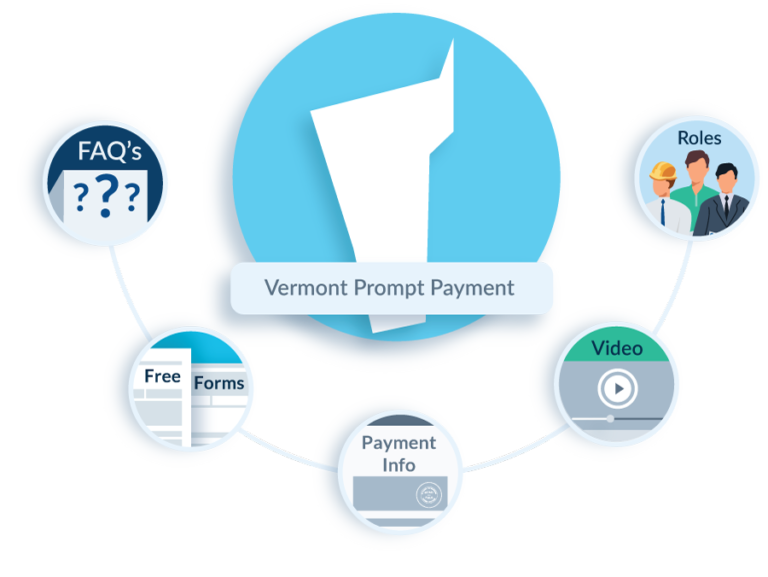Vermont Prompt Payment Requirements
- Private Jobs
- Public Jobs
- Top Links
Prime Contractors
For Prime Contractors, progress payment must be made within 20 days after the end of the billing period or 20 days after delivery of invoice.
Subcontractors
For Subcontractors, payment due by the later of 7 days after payment is received from above, or 7 days after receipt of invoice.
Suppliers
For Suppliers, payment due by the later of 7 days after payment is received from above, or 7 days after receipt of invoice.
Interest & Fees
Interest at 12% year. Attorneys' fees to prevailing party. Penalty of 1% month for amounts that were withheld "wrongly"
Prime Contractors
For Prime (General) Contractors, payment due within the later of 20 days after the end of the billing period or 20 days after delivery of invoice.
Subcontractors
For Subcontractors, payment due by the later of 7 days after payment is received from above, or 7 days after receipt of invoice.
Suppliers
For Suppliers, payment due by the later of 7 days after payment is received from above, or 7 days after receipt of invoice.
Interest & Fees
Interest at 12% year. Attorneys' fees to prevailing party. Penalty of 1% month for amounts that were withheld "wrongly"
Prompt payment laws are a set of rules that regulate the acceptable amount of time in which payments must be made to contractors and subs. This is to ensure that everyone on a construction project is paid in a timely fashion. These statutes provide a framework for the timing of payments to ensure cash flow and working capital.
Projects Covered by Prompt Payment in Vermont
The Vermont prompt payment laws set payment deadlines and penalties for both public and private construction projects within the state. Both types of projects are regulated by the same laws found in Vt. Stat., Title 9, §§ 4001-4009.
Deadlines for Payment
Payments made from the public entity to the prime contractor will be determined by the contract terms. However, if the contract is silent, then the prompt pay deadlines are enforced. For all payments from the owner or public entity to the prime contractor, they must be released within 20 days of either the end of the billing period, or delivery of a request for payment; whichever is later. As for payments from the prime to subcontractors, these must be made within 7 days of either the prime receiving payment, or the prime’s receipt of the sub’s request for payment; whichever is later. The same deadline applies to all other payments down the payment chain.
Penalties for Late Payment
Vermont’s prompt payment laws do provide a list of reasons why payment can be properly withheld. If none of these circumstances exist, and payment is either late or wrongfully withheld, interest will begin accruing at a rate of 12% per year (1%/month). If the dispute goes to court, the prevailing party will be awarded attorney fees. If it is determined that the amounts were “wrongfully withheld” and additional 1% interest per month may be imposed.

